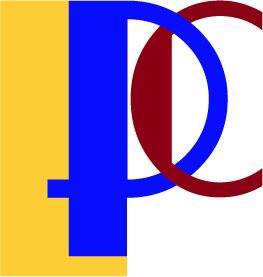
Language Proficiency Center, Dhaka
The role of English as a language of international communication had expanded rapidly lately. The recent developments in the fields of information technology and communication have ushered the need for a practical command of English for people in many parts of the world including Bangladesh. In response to the changing needs there have been methodological reforms in the area of English language teaching. The concept of communicative teaching learning was developed in the 1970s to address the need for developing communicative competences of the learners of English as a Foreign Language (EFL). Bangladesh has a long history of teaching English which was dominated by grammar translation method. However, one of the major developments in the history of teaching English in Bangladesh was marked by the introduction of communicative language teaching (CLT) in 1997. Since then the teachers of English at secondary level have been sensing a process of reform in and outside their classroom. Within that spell of change new communicative curriculum was developed. The new curriculum recommended the introduction of a communicative syllabus for the secondary schools and Madrasahs in Bangladesh. Accordingly newly written communicative textbooks have been published by the National Curriculum and Textbook Board (NCTB). This series of English textbooks known as English for Today (EFT) are being now taught at the secondary schools and Madrasahs in the country. These changes have caused much confusions, frustrations and resistance from the teachers as they have no familiarity with the contents and methodological aspects of this new approach. Moreover, these teachers in general have a very poor level of English proficiency. The only way to help these teachers cope with these odds is to train them. LPC is trying to address the issue of Madrasah teachers’ professional training through this course.
LANGUAGE PROFICIENCY CENTER [LPC] : has been selected as the in country service provider by the American Center to run the English Access Microscholarship Program for students from disadvantaged backgrounds. LPC is a private Language Institute set up in 1998 with a view to providing a forum for underprivileged segment of the student community in Dhaka to learn communicative English. In 2008 LPC expanded its network to cover Chittagong followed by Rajshahi in 2009. The American Center rightly determined that in Bangladesh, Islamic religious schools, commonly known as Madrasahs are the most ignored institutes where use of English is almost negligible. The students generally come from highly disadvantaged background, where they can ill afford the cost of tuition fee for any such courses. LPC shares the belief with the American Center, that by preferring to go for Madrasah students, they will not only be exposed to a completely new environment, but also, more importantly, new windows of opportunity will open up for the enterprising ones. It was an option well taken in the end as it paid off fruitful dividends.
LPC with its experienced group of resource persons, presently numbering thirteen and state of the art teaching tools offer a wide ranging of courses which include communicative English course, spoken Arabic, spoken Bangla and Basic Computer skill courses, TOEFL, SAT and IELTS. While most private language institutes have courses ranging from three months to six months, LPC has English language courses ranging from three months to two years. The courses are designed to cater to the different need of the course participants.
One of the basic objectives of the program is to create a better understanding of the values and culture of the American society,besides making madrassa student proficient in English. : The Madrasah students all have stereo-typed negative image of the USA. Our experience with the first group of Madrasah students started with this negative attitude. However, as we progressed, so did their mindset. The course has been designed with the twin objectives of not only exposing them to English language but also of educating them on the life style, values and traditions of the American people which are not truly reflected in the films and certain print media which pursue their own agenda. The impact of the course can hardly be exaggerated. When LPC first started the Access Program with 40 Madrasah students, there were some apprehensions about how these Madrasahs, their teachers and students as well as the guardians would look at it. True to our fears, we started off with some reservation and antagonism. Some of them questioned the motive of the program. Some doubted the beneficial effect of the program. To be candid, many could not comprehend the silent impact of the program on the participants mind set. An analysis of the impact of the first program on the concerned benefactors reveals a better appreciation and understanding of the American Culture and Society. The image of the US as an imperialist super power hungry for global domination no longer haunts them. In 2004, the Madrasahs were apprehensive of the goal of the program, now; they are showing greater interest in the program. In the past, some parents wanted to withdraw their children from the program, now quite a few guardians approach with requests to take in their wards.
Perhaps, the biggest success of the program is the confidence it has generated in the participants along with the enhancement of their ability to converse in English. The fact that both boys and girls are learning English together, participating in various enhancement activities together is another success of the program. As for the opportunities created for the participants, these students are now competing with the students from privileged background for enrolling in universities or colleges of repute, in other words, they are moving away from religious based education system to secular based education system.